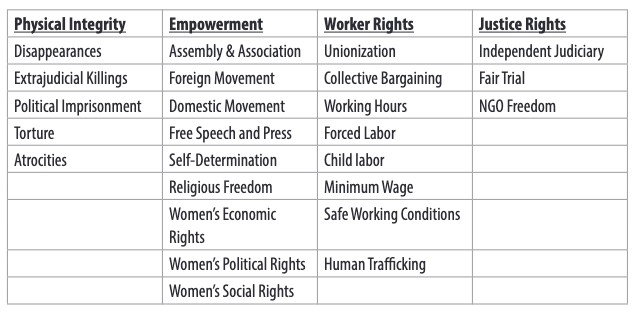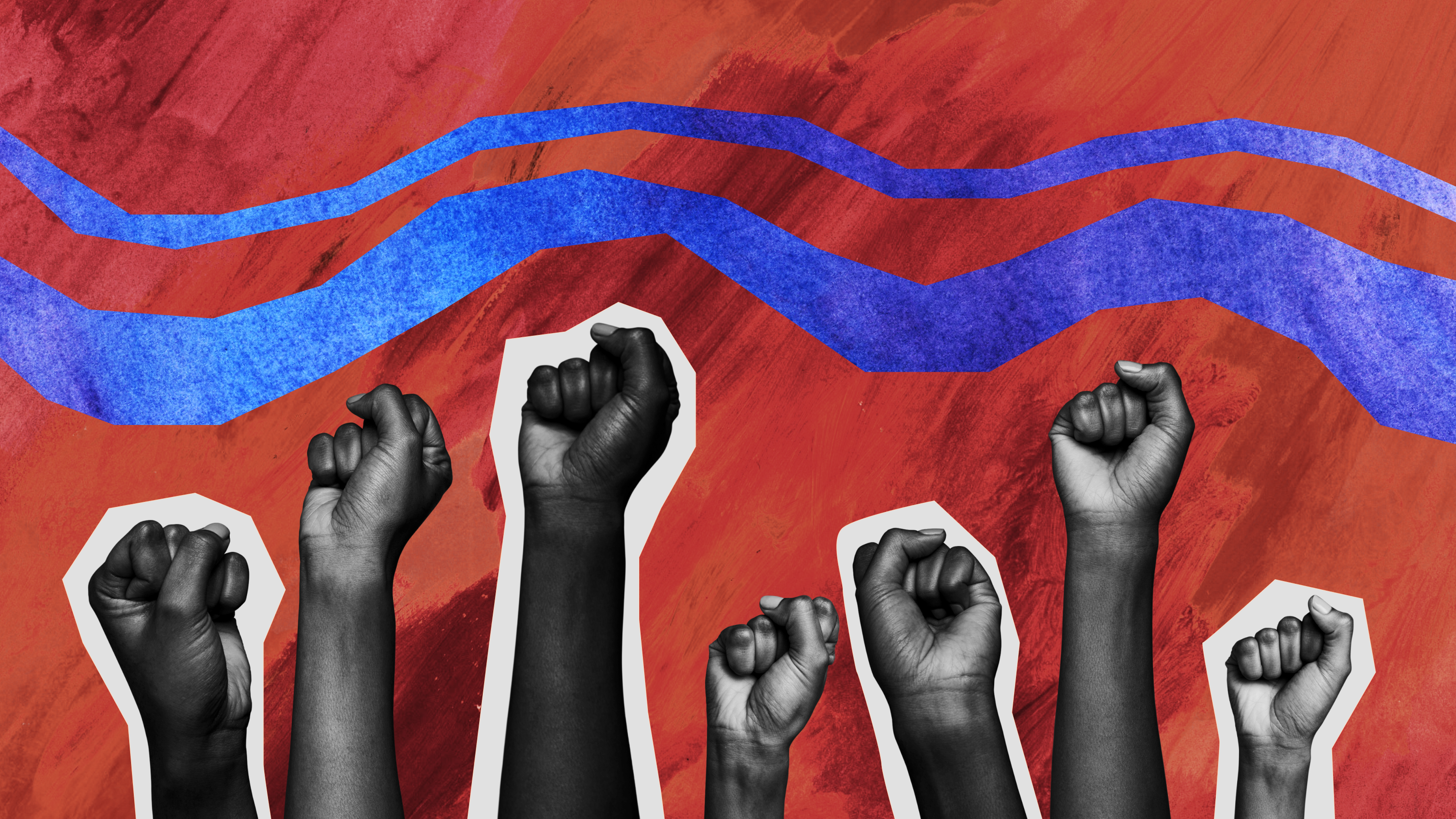Why the U.S. scored a “D” for human rights in a new report

- The 2023 GRIP Annual Report, compiled by the Global Rights Project and CIRIGHTS, evaluates 195 countries on their commitment to various human rights.
- The report ranks the U.S. 59th in human rights, critiquing its issues with torture, police violence, and labor rights.
- Despite these issues, the U.S. performs better in human rights than many populous countries, including China and Russia.
Americans like to think their country is exceptional — an unequaled bastion of freedom and opportunity. However, when it comes to human rights, a new report suggests the United States is anything but exceptional. Compiled by the Global Rights Project (GRIP) at the University of Rhode Island and the CIRIGHTS data project, the 2023 GRIP Annual Report assesses and ranks 195 countries on their dedication to 25 individual human rights. These are divided into four categories:
- Physical integrity: the right of citizens to not be unnecessarily harmed by state agencies
- Empowerment: the right to live and speak freely
- Worker rights: the right to decent-paying and safe work
- Justice rights: the right to fair laws

Unfortunately, the report showed that countries generally don’t respect human rights: 60% of nations received a score of less than 60 out of 100, corresponding to an “F” letter grade.
“We think these findings make it clear that there’s a lot of work to do in terms of ensuring that all people have a chance to live a life of dignity and respect,” Skip Mark, an assistant professor of political science at the University of Rhode Island and director of the Center for Nonviolence and Peace Studies, remarked.
Scoring a 64, the U.S. barely avoided a failing grade, ranking 59th overall. Compared to the country’s neighbors in the Americas, it ended up 14th out of 31. Among developed countries, the U.S. ranked sixth worst.
Why, when it comes to human rights, does America not seem to be living up to the lofty ideals upon which it was founded? While the architects of the report lauded the United States for its generally strong civil and political rights, they noted that the nation comes up short in a few areas: torture, extrajudicial killings, and labor rights.
U.S. law enforcement agencies far too often utilize interrogation techniques that cross over into torture, the report’s authors explained. Police also kill more than 1,000 people every year, disproportionately black Americans. Moreover, “the lack of effort to pass policing reform at the federal level, failure to develop national tracking of police killings, and failure to update use-of-force laws to comply with international standards” signal that these deaths seem to be accepted by policymakers as status quo.
As for deficits in U.S. labor rights, the report’s authors cited “obstacles to unionization and collective bargaining, as well as failures to guarantee safe working conditions, decent wages, and benefits.” They also noted that there is frequent use of child labor, particularly in agriculture, where children as young as 12 years old can work up to 60 hours per week.
The authors also warned that any democratic backsliding in the U.S. would almost certainly cause human rights within its borders to further deteriorate.
On the bright side, the United States scores well in human rights compared to other populous countries, which tend to perform far worse compared to less populated nations. The U.S. also features far better human rights than its chief geopolitical rivals, China and Russia, which respectively scored just 20 and 24.
Human rights slightly declined overall since the turn of the century, the report found. The five top countries for human rights were Finland, Australia, Estonia, Sweden, and Austria. The bottom five were Iran, Syria, Yemen, Venezuela, and Egypt.





